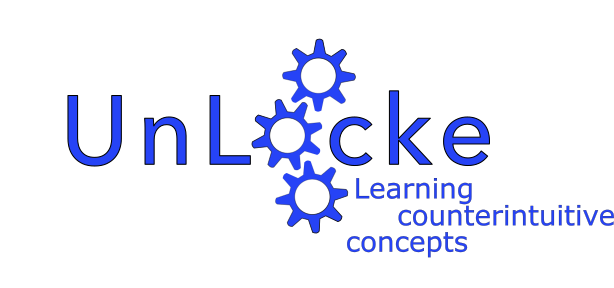Principal Investigators: Denis Mareschal, Michael Thomas, Iroise Dumontheil (Birkbeck), Andy Tolmie, Emily Farran, Kaska Porayska-Pomsta, Sveta Mayer (Institute of Education), Derek Bell (Learnus)
Funder: Education Endowment Fund and Wellcome Trust
Project description: UnLocke is a project to develop and test software that aims to improve pupils’ ability to “inhibit” irrelevant prior knowledge when learning new concepts in 100 primary schools. When learning new concepts in science and maths, pupils must be able to inhibit prior contradictory knowledge and misconceptions in order to acquire new knowledge successfully. This skill of “interference control” varies between pupils, with variation evident from an early age. Disadvantaged pupils seem to have weaker control skills than their wealthier peers. The project will use a computer game to train pupils’ ability to control such interference. Pupils in up to 100 primary schools will undertake 15 minutes of exercises 3 times a week, at the beginning of maths or science lessons. In the game, a child-friendly character will try to solve problems with help from the player, providing prompts and suggestions. The aim is to train the pupils to inhibit their initial response, and instead give a more delayed and reflective answer. Exercises will relate to specific maths and science content. For example, exercises will help pupils to realise that mice and elephants have the same-sized cells, or that the world is round despite seeming flat. Teachers (or Teaching Assistants) will receive a half-day training workshop to understand the content and background, but the hypothesis is that interference control improves best with practice, not through a change in pedagogy. In terms of existing research, evidence from neuroscience supports the hypothesis that inhibition control is necessary to develop the reasoning skills required in maths and science. The proposed intervention draws on work which suggests that when being trained in inhibition control, participants begin to engage more of the parts of the brain required for logical thinking. Emerging neuroscience research suggests that the inhibition needs to happen in the networks that are specific to the skills being developed, thus the need for exercises to be related to specific subject knowledge. Primary schools are being recruited to take part in the research. For more information contact unlocke@psychology.bbk.ac.uk.
Papers:
Roy, P., Rutt, S., Easton, C., Sims, D., Bradshaw, S., & McNamara, S. (2019). Stop and Think: Learning Counterintuitive Concepts. Report from the National Foundation for Educational Research for the EEF.
Wilkinson, H. R., Smid, C., Morris, S., Farran, E. K., Dumontheil, I., Mayer, S., … & Mareschal, D. (2019). Domain-specific inhibitory control training to improve children’s learning of counterintuitive concepts in Mathematics and Science. Journal of Cognitive Enhancement, 1-19. doi: 10.1007/s41465-019-00161-4
Blogs:
Children’s understanding of counterintuitive concepts in maths and science, by Dr. Iroise Dumontheil
Results from the paper Domain-specific inhibitory control training to improve children’s learning of counterintuitive concepts in Mathematics and Science, by Dr. Hannah Wilkinson.

